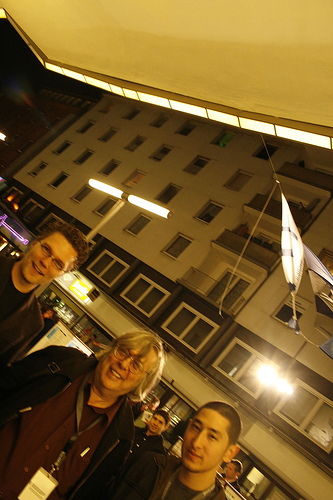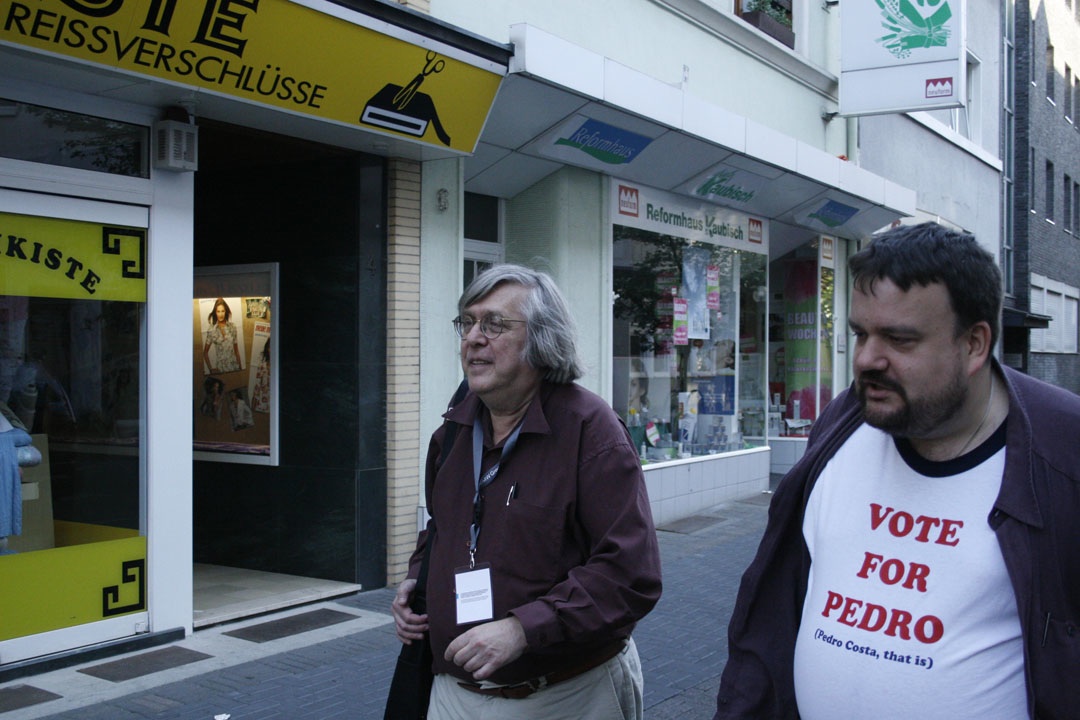Here are five more of the 40-odd short pieces I wrote for Chris Fujiwara’s excellent, 800-page volume Defining Moments in Movies (London: Cassell, 2007). — J.R.

Scene
1957 / Paths of Glory – Timothy Carey kills a cockroach.
U.S. Director: Stanley Kubrick. Cast: Ralph Meeker, Timothy Carey.
Why It’s Key: A quintessential character actor achieves his apotheosis when his character kills a bug.
To cover up his vain blunders, a French general (George Macready) in World War I orders three of his soldiers (Ralph Meeker, Joe Turkel, Timothy Carey), chosen almost at random, to be court-martialed and then shot by a firing squad for dereliction of duty, as an example to their fellow soldiers. When their last meal is brought to them, they can mainly only talk desperately about futile plans for escape and the hopelessness of their plight. Then Corporal Paris (Meeker) looks down at a cockroach crawling across the table and says, “See that cockroach? Tomorrow morning, we’ll be dead and it’ll be alive. It’ll have more contact with my wife and child than I will. I’ll be nothing, and it’ll be alive.” Ferrol smashes the cockroach with his fist and says, almost dreamily, “Now you got the edge on him.” Read more
Written for Volume 34, Number 3, Issue No 135 of the Winnipeg-based Canadian arts journal Border Crossings in Fall 2015 (see below). — J.R.

I’m frequently troubled these days by the growing absence of global perspectives in what passes for news and other forms of mainstream discourse in the U.S. — the perpetually shrinking definitions of what we mean by ‘we’. A good many of the congealed stereotypes of foreign cultures that crop up in both Hollywood blockbusters and Internet chatter — ranging from the notion that ‘the French’ are crazy about Jerry Lewis to the pop images we still have of Latinos, Italians, Russians, Arabs, and Asians in SF blockbusters whenever ‘the world’ has to be represented — can paradoxically be traced back to the 50s and 60s, when the Cold War and all of its most rigid either/or assumptions were still in force. One might suppose that the combined resources of the Internet and digital viewing would widen our cinematic and other cultural reference points rather than shrink them. But the tendency of even respectable, adult media pundits to speak about ‘good guys’ and ‘bad guys’ in the world at large suggests a metaphysics tailored to the dimensions of a Star Wars saga or a video game, where the cultural givens plunge back even further into the mythical past: Flash Gordon serials and Triumph of the Will from the mid-1930s, Roy Rogers Westerns and airborne World War 2 epics of the mid-1940s. Read more
This is the second of my bimonthly columns written for Cahiers du Cinéma España, which ran in their third (July-August 2007) issue. It seems fitting to post it three years later because I’m back at the same festival again, serving again on the FIPRESCI jury. It’s hard not to feel an immense sadness about the intervening death (by murder, in Manila, along with his Slovenian partner Nika Bohinc) of Alexis Tioseco, my fellow juror, who can be seen here in the first photo, on the far right. This was most likely taken by Olaf Möller, one of the festival’s programmers, who can be seen in the second photo below, taken by Alexis.
Amit Dutta, incidentally, whose Kramasha won our FIPRESCI prize three years ago, will be attending the festival for the first time this year, and presenting a program tomorrow night. (Update, a day later: Unfortunately, Dutta had to cancel his visit due to health reasons, but two programs of his films will still be presented.) — J.R.


The prospect of attending a festival of short films has always seemed difficult to me because of the number of aesthetic gear changes involved in moving from one film to the next. Read more




